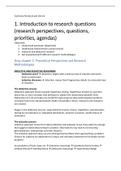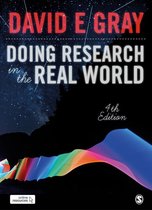Summary
Summary Well-organised information of the lectures and theory for the course Research Methods for Health Sciences
- Course
- Institution
- Book
All the information you need to complete this course. Well-documented and easy to read. Images and pictures of high quality.
[Show more]




